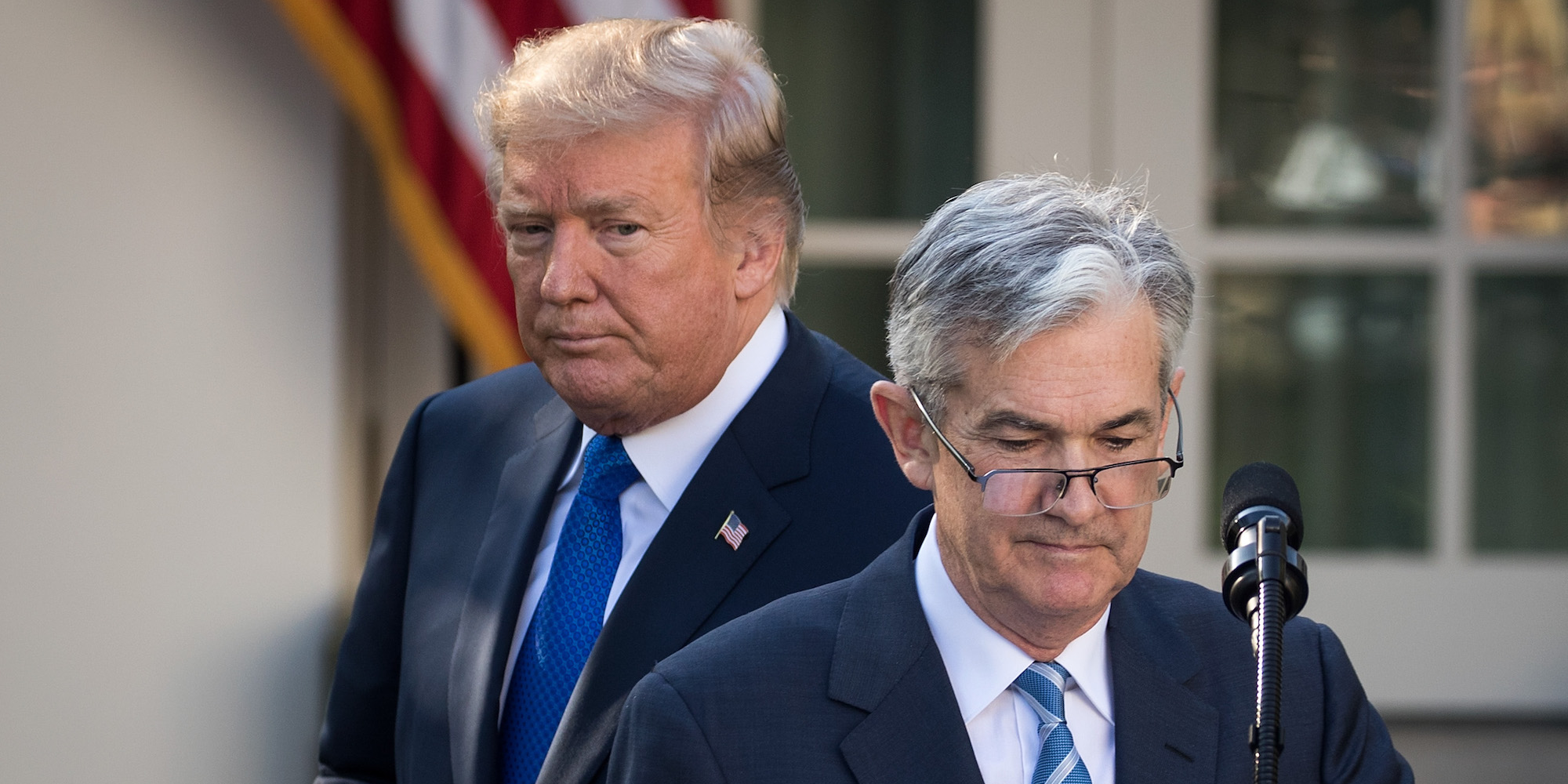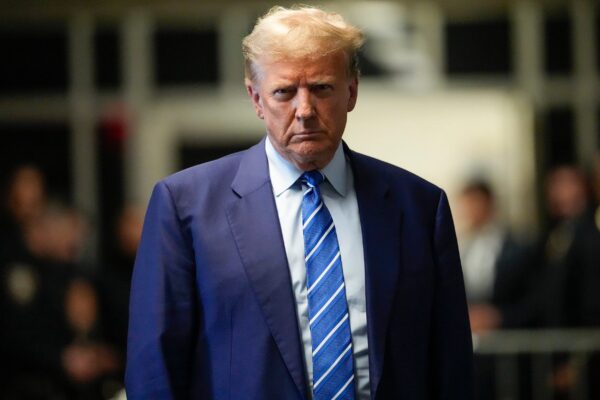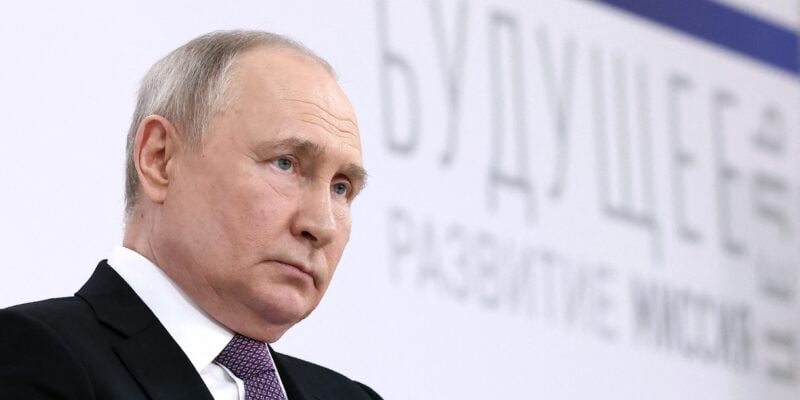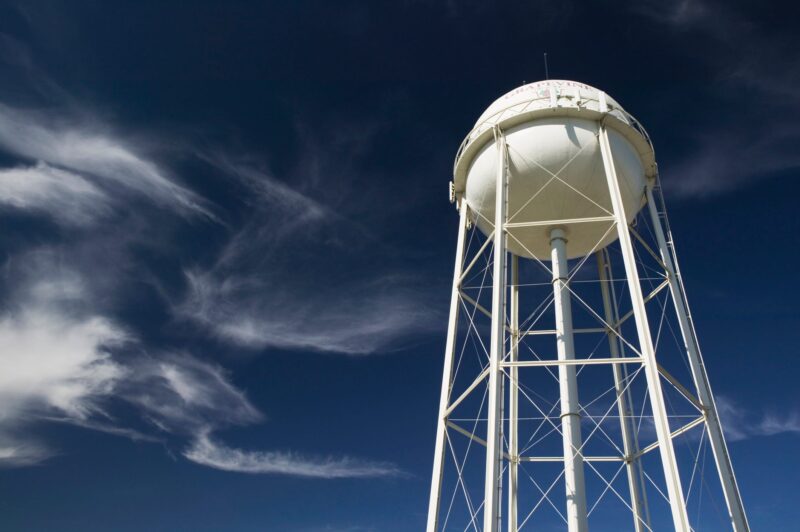- President Donald Trump continued to criticize the Federal Reserve’s recent monetary policy decision in an interview with Reuters on Monday.
- The statement comes after a report that Trump complained about Federal Reserve Chair Jerome Powell and the central bank’s recent interest-rate hikes during a fundraiser in Southampton, New York, on Friday.
- Trump was displeased with Powell’s decision to raise interest rates, according to Bloomberg.
- This would not be Trump’s first criticism of Powell and the Fed. The president publicly questioned the interest-rate hikes in July.
President Donald Trump continued to blast the Federal Reserve’s recent interest rate hikes in an interview Monday, days after complaining about Federal Reserve Chairman at a private GOP fundraiser.
Trump told Reuters that he was “not thrilled” by Powell’s decision to raise interest rates and would continue to criticize the Fed if interest rate hikes continued.
Trump said that during the recent spat of trade fights central banks in other countries have helped to cushion the economic impact, but not in the US.
“We’re negotiating very powerfully and strongly with other nations,” Trump said. “We’re going to win, but during this period of time I should be given some help by the Fed. The other countries are accommodated.”
The Fed has been gradually raising interest rates since the end of 2015, with five hikes coming under Trump. While economic theory (in the simplest terms) says that rate hikes slow the pace of economic growth, interest rates today remain historically low, and measures of credit growth show that access to loans is still generally easy.
Additionally, Trump's tariffs on goods coming into the US are generally thought to be inflationary, driving up consumer prices. In the face of higher inflation the Fed typically increases interest rates.
The criticism comes after a private Republican fundraiser on Friday, during which Trump reportedly attacked Powell's interest-rate hikes.
According to Bloomberg, Trump complained that Powell - the president's own pick for the Fed's top job - was raising interest rates instead of delaying rate hikes and keeping monetary policy loose.
Trump was attending a private fundraiser with GOP donors at the Southampton, New York, home of Howard Lorber, the chairman of the iconic hot-dog company Nathan's Famous. The Chicago Cubs co-owner Todd Ricketts, Commerce Secretary Wilbur Ross, Treasury Secretary Steven Mnuchin, and the White House adviser Jared Kushner were also there, according to Bloomberg.
This isn't the first time Trump has taken exception to the Fed's gradual interest-rate hikes. In July, the president bashed the rate hikes during an interview with CNBC but also praised Powell as a good person. Trump followed up those comments with further complaints on Twitter.
The Federal Reserve operates independently of the government, as it is sometimes compelled to make interest-rate decisions that are meant to be good for the economy in the long run but that may be politically unpopular. Presidents have not commented on Federal Reserve policy in over twenty years after Bill Clinton decided to stay mum on the central bank's choices.
Presidential meddling in monetary policy has a troubling history, most notably President Richard Nixon's insistence that the Fed keep interest rates low ahead of the 1972 election. Economists said the pressure helped create the stagflationary economy of the 1970s.
During the previous episode of Fed criticism, the White House maintained that Trump respected the central bank's independence.
"Of course the president respects the independence of the Fed," the White House spokeswoman Lindsay Walters told Business Insider at the time. "As he said he considers the Federal Reserve Board Chair Jerome Powell a very good man and that he is not interfering with Fed policy decisions."
Despite Trump's expressed desire for lower interest rates, the president has so far appointed members of the Fed's Board of Governors that appear to be in line with Powell's thinking on the need for hikes. Typically, the greatest influence a president has over the Fed is the appointment of governors.











